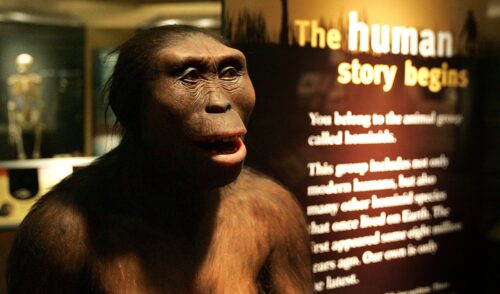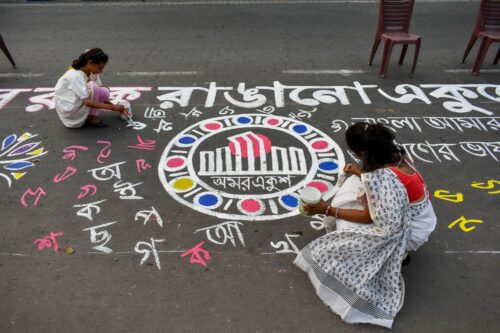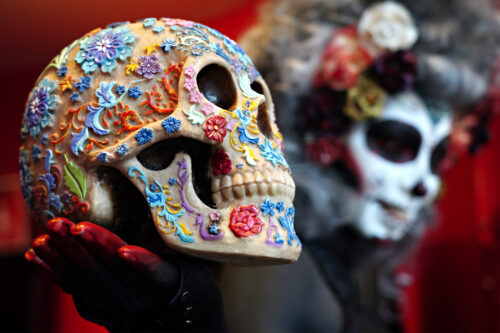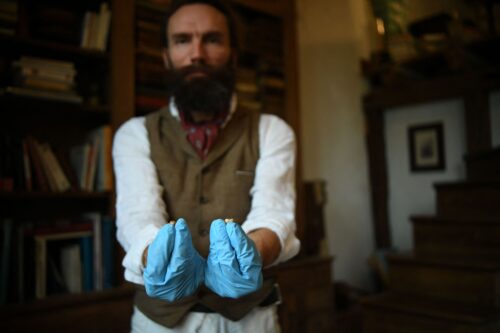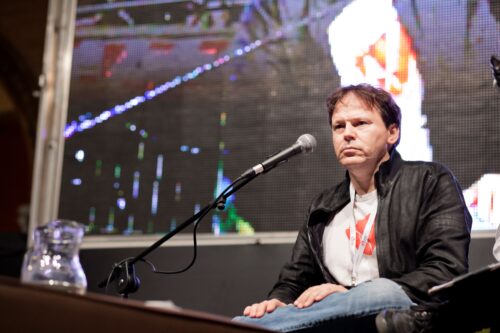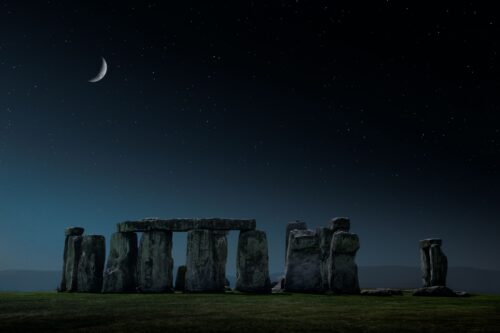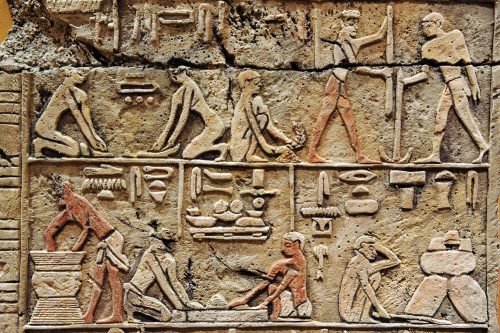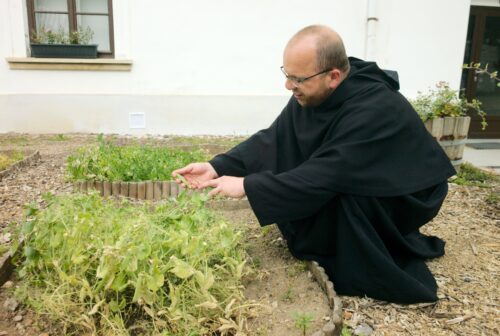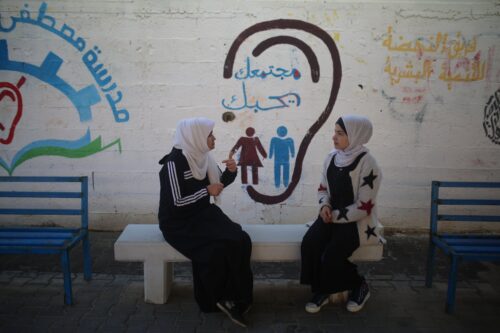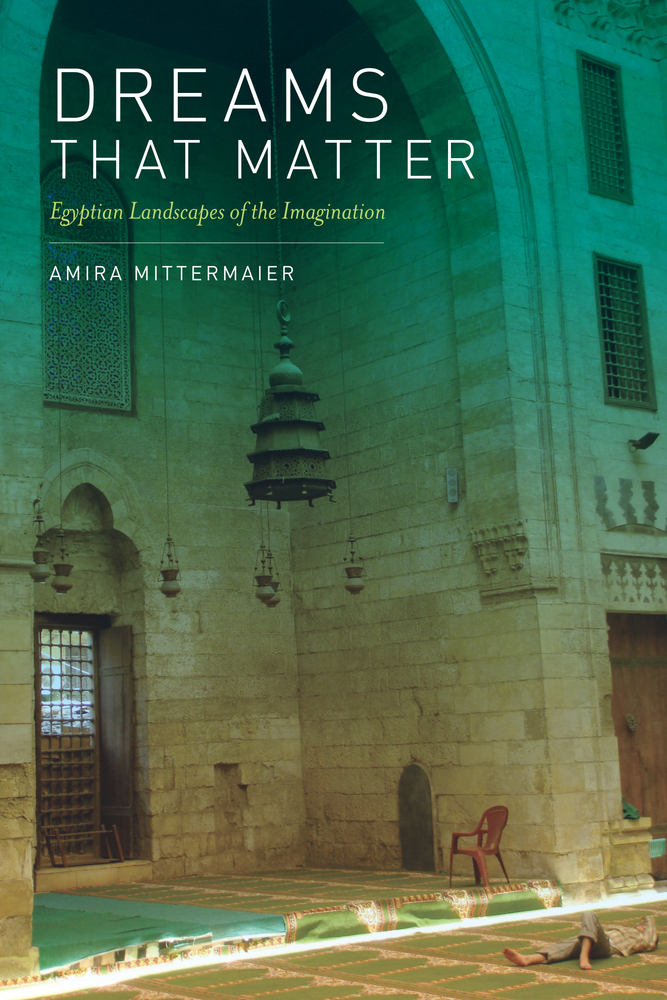Do Dreams Give Voice to the Divine?
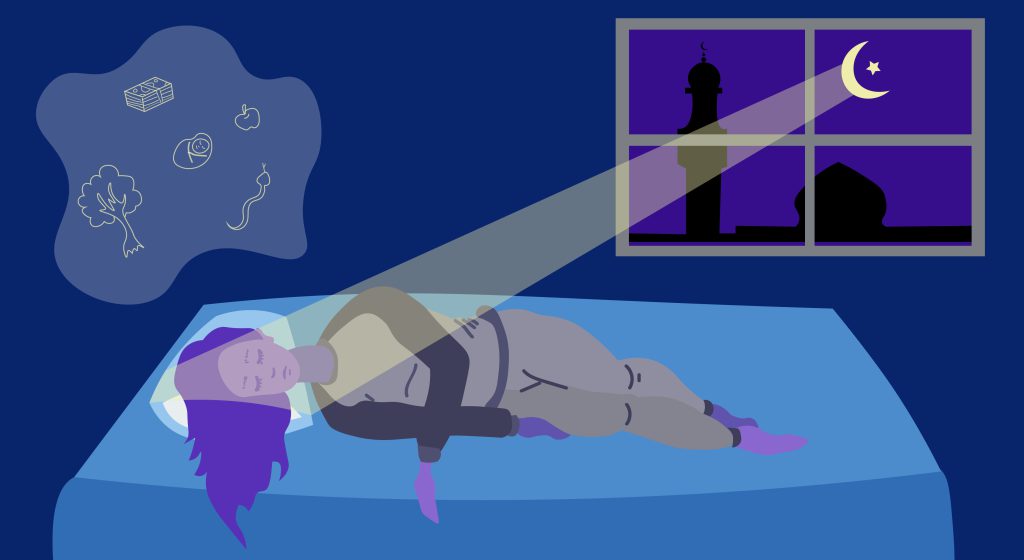
As a doctoral student some 15 years ago, I spent more time thinking about dreams than about waking life. I was immersed in the evasive, enthralling dream worlds of the Islamic tradition, studying and writing my dissertation about dreamers and dream interpreters in Egypt. Life in Egypt was difficult: The people I came to know were deeply affected by rising food prices, low wages, traffic, pollution, corruption, and police violence. Yet in the midst of these less-than-dreamy circumstances, or perhaps because of them, Egyptians seemed to pay meticulous attention to their dreams.
For many Muslims, dreams are more than a way to process memories and experiences. They can also be prophetic and can offer moral guidance. Divinely inspired dreams have been a part of the Islamic tradition from its very beginning: The Prophet Muhammad’s wife, Aisha bint Abu Bakr, reported that her husband received divine inspiration by way of “good dreams which came true like bright daylight.” The Quran and hadith (the latter are records of the Prophet Muhammad’s sayings and deeds that are considered one of Islam’s most authoritative sources) suggest that dreams can offer glimpses of divine inspiration, even in the 21st century.
Such interest in dreams has led to a backlash from some Muslim reformist scholars. In order to prove that Islam is a rational religion, fully compatible with the modern world, they have tried to decrease emphasis on dreams as a source of “real world” knowledge. Despite these scholars’ mistrust of the supernatural, dreams remain important in Islam, particularly in Sufi communities, which are engaged on a spiritual path and often use dreams for inspiration and guidance. In and beyond Sufi circles, many Muslims believe that dreams can not only predict the future, they can open up the possibility of communicating with the dead, including with the Prophet Muhammad.
My world today is far removed from the dream culture of Muslims. But an email I received last summer from Safa (a pseudonym), who is a Muslim doctoral student in France, briefly plunged me back into the realm of dreams.
Safa had read my book, Dreams That Matter, and she wanted to know how the Islamic tradition distinguishes divinely inspired, premonitory dreams from everyday ones. While I couldn’t tell her precisely how to interpret what she saw, I could tell her that, according to the hadith literature and Muslim dream manuals, there are three kinds of dreams. Hulm, “bad dreams,” are those sent by the devil or evil spirits. Ru’ya, “true dreams,” are divinely inspired—providing moral guidance, glimpses of the future, or communication with the dead—and come from God or those close to him, such as the Prophet Muhammad or Muslim saints. And hadith nafsi, or “talk of the self,” come from within and reflect a dreamer’s wishes and worries. These categorizations radically contrast with narrow Western interpretations. Most analyses in the West tend to lean on the theories of Sigmund Freud, the founder of psychoanalysis, who believed that all dreams stem from a person’s unconscious. In an Islamic context, only one type of dream does.
In her email, Safa described a dream in which she held a beautiful newborn baby girl while a male friend helped her climb a narrow set of stairs. She wrote that they “smil[ed] at each other like lovers.” Everything was dark, but the two of them were illuminated. Safa woke up feeling ecstatic.
Right before having the dream, Safa explained, she had talked with the man about his relations with women, and she walked away thinking her relationship with him would always only be a friendship, a thought that made her sad. “And then I made this dream. Do you think it is merely the fruit of my imagination and expression of my own wishes?”
I was at a loss. Studying Muslim dreams as an anthropologist had not taught me to interpret or categorize them—rather, I had observed the many different ways in which Muslims think about, dismiss, or act upon their dreams. I did learn a few tricks during my fieldwork, however; for instance, when a dream occurs can sometimes provide a clue—early morning dreams, according to the Muslim tradition, are more likely to be divinely inspired—as can the dreamer’s spiritual state. The content of the dream itself offers a primary clue. Scary or convoluted dreams are probably sent by the devil. Brief, clear ones are likely divinely inspired. Discerning between wish-driven dreams and divinely inspired ones, on the other hand, is often difficult and requires a specialist.
In Egypt, people often confused me for a dream interpreter. They confided in me, revealing their dreams, and then they waited for an authoritative interpretation, which I was unable to offer. And now it was happening again with Safa. While I think I know what a Freudian psychologist would make of her dream, there is not one fixed interpretation in Muslim dream culture precisely because there are different categories of dreams. It takes skill, experience, learnedness, and even some divine inspiration to interpret dreams properly. Still, I felt obligated to offer Safa some guidance.
I began missing Sheikh Nabil, a Cairo-based dream interpreter who was not widely known in Egypt, yet was much respected by those who sought his advice. (Sheikh generally is the title given to a leader in a Muslim community but here simply refers to Nabil’s spiritual gifts.) He was one of the people who figured centrally in my research and book. Sheikh Nabil had been my go-to dream interpreter because I had come to appreciate his careful engagement with what people told him and because he was almost always available. Anyone who asked me about a dream, I sent to him. I gave the person his cell number or led them straight to the shrine where he spent most of his time.
His was just one of many shrines and mosques on an unpaved street in Islamic Cairo. In a dream Nabil once had—a divinely inspired, premonitory, directive one—he was instructed to reopen this previously neglected shrine and take on its legacy. Within it lie the remains of Ibn Sirin, an eighth-century Muslim scholar who wrote the comprehensive dream manual to which many Egyptians still turn today for guidance.
For Muslims who are committed to understanding dreams, Ibn Sirin is the father of Islamic dream interpretation. After Nabil experienced his revelatory dream, he believed himself to be spiritually connected to Ibn Sirin, and he began guarding the small shrine and interpreting its visitors’ dreams. By the time I met him in 2003, he was skinny, balding, and close to 60 years old. He spent his days receiving dreamers, listening and talking with them, and interpreting dreams while smoking strong tobacco in a gurgling water pipe and drinking one glass after another of black tea.
Some Egyptian dreamers simply look up symbols in a dream dictionary, including Ibn Sirin’s manual. Others consult relatives, most often elderly women, who are skilled interpreters. Those who have more time and know their way around Islamic Cairo seek out full-time interpreters such as Nabil. During his years at the shrine, a wide range of people—young and old, male and female, wealthy and poor—visited to tell him their dreams. He would categorize their dreams into hadith nafsi, hulm, and ru’ya, then tell the seekers what their dreams meant and what to do about them. Before leaving, most of the visitors would hand a few small bills to Nabil, touch the metal enclosure behind which Ibn Sirin is buried, and speak their blessings.
I tried to imagine what Nabil would make of Safa’s dream. Given that she recognized her own disappointment in her friend’s lack of romantic interest, maybe he would declare it “talk of the self.” But the illumination of the two figures and the elevation Safa felt upon awakening are signs of a dream that is divinely inspired and offers a glimpse of what the future will hold.
Sheikh Nabil died in November 2011, about a year after my book came out. Word on the street is that the sheikh who has taken over the shrine is not divinely inspired, well-read, or even particularly nice. Since I’d lost touch with the other dream interpreters I knew in Egypt, I suggested that Safa contact experts in the Muslim community near her home in France. But although she spoke with some imams in Toulouse, none of them were able to help.
Safa herself did not seem to fully believe her dream was prophetic. In her email, written in English, she had used the phrase “I made this dream.” If she truly believed the dream was divine, there are other ways she might have phrased it: something came to her in a dream or she saw something in it.
On a psychoanalyst’s couch or in a therapist’s office, dreams are often an opportunity for the dreamer to reflect back on childhood and process repressed memories. At Ibn Sirin’s shrine, it was the opposite: Dreams were an invitation to think about the future. Yet the lines that separate memory from wish fulfillment from divine inspiration can be blurry. Even Freud, who declared that all dreams stem from the unconscious, noted that “there is at least one spot in every dream at which it is unplumbable—a navel, as it were, that is its point of contact with the unknown.”
Nabil and others have insisted that in addition to a deep familiarity with the religion’s texts, a good Muslim dream interpreter needs a touch of divine inspiration. The very act of interpretation is divinely inspired, Nabil once explained to me. Another Egyptian interpreter told me that the Prophet Yusuf appeared to him in a dream when he was 10 years old. Yusuf gave him a glass of milk to drink and said to him, “This is dream interpretation.” From then on, he knew how to read dreams and became famous for his abilities.
Muslim dream interpretation is an art, one connected to a rich culture that can give just about anyone a glimpse of the prophetic. While Nabil kept this tradition alive, he was no purist. Even as other Egyptian dream interpreters dismissed Freud as un-Islamic or Satanic, Nabil joyfully and playfully integrated the Freudian model into his own religious one. He explained to me that the Freudian concept of the unconscious is the same as the Islamic tradition’s metaphysical “Unknown” (al-ghayb). “Say your friends get married, and you want to get married, too. Then you might dream of it,” he once told me, which is in line with the Freudian interpretation. Then, pivoting away from Freud, he added: “It’s a manifestation from God.” A divine manifestation is something quite different from the expression of an unconscious wish. Far from being “only a dream,” tied up with a person’s life-history and wishes, a divine manifestation opens up the dreamer to the deepest level of reality and can convey knowledge about things that are yet to occur.
Ultimately, for Safa, the line between wish fulfillment and divine inspiration may have been an inconsequential one. As far as I’m concerned, whether her dream was prophetic or a product of her unconscious, I hope she has begun a new life with the man she so clearly adores.










